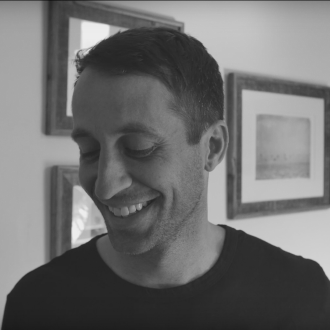Get exclusive podcasts and content by becoming a member of the podcast find out more here >>
In episode 134 of The OCD Stories podcast I interviewed Aaron Harvey. Aaron is the founder of the wonderful IntrusiveThoughts.org a not for profit website thatbrings together sufferers, advocates, professionals and loved ones of people with OCD in order to save lives. Aaron shares his OCD story in an honest and open way.
In this episode I chat with Aaron about his OCD story, including detail into some of his sexual, violent intrusive thoughts. We talk about why rumination will never give you the answer, his recovery journey including psycho-education, therapy, joining the community, mindfulness, and surfing. Aaron shares the 478 mindfulness technique, why you are not your thoughts, getting in a flow state, his biggest insight, IntrusiveThoughts.org and helping others. Hope it helps.
To listen on iTunes click the button, or go to iTunes and search “The OCD Stories“. If you enjoy the podcast please subscribe and leave a review. It helps us reach more people who need to hear these remarkable stories of recovery!
You can also listen on Android and over devices through most podcast apps, such as Stitcher.
Find out more about Aaron:
Resources:
See Paris First poem
Rose Cartwright on the podcast
UNSTUCK documentary
The OCD Stories book >>
To your success,
Stuart
Get exclusive podcasts and content by becoming a member of the podcast find out more here >>

This was a great podcast! Stuart said it was one of his favorites and I have to agree Loved the comments about learning to deal with a pattern of thinking rather than any particular content.
Thanks Ray, glad you liked it.
Hi, Stuart! I have been listening to your podcast for a while now and find it extremely helpful – not only in the sense that it provides the comfort of a community but also that it is very factual and inspires me to challenge my OCD and take part in ERP. To be perfectly honest, I didn’t finish this episode yet because I had to stop at one part that particularly bothered me. I was hoping you could clarify. Near the beginning of the podcast, Aaron said that his “brain was telling him to DO” things like hurt himself. I am fully aware of the OCD brain’s trickery into making you THINK about doing things (or thinking you have/might/would,etc.), but I thought the whole premise of OCD was that you wouldn’t actually DO those “scary” things. And yet, he mentions responding to the thought of hurting himself by ACTUALLY scraping his arms on fences and such. This is inconsistent with what I know of OCD-that you wouldn’t actually commit these problematic acts. Perhaps you could shed some light on this for me? I have felt the sensation of my arms tingling/itching before in response to the thought/image, but I have not heard of responding in an actual self-harm way as part of OCD, because the whole point is you wouldn’t commit these acts? Perhaps there is another element here that I am missing? I would greatly appreciate your advise. Thank you for what you do. It truly has given me so much hope!
Hi Nikki,
Thanks for your comment, and kind words 🙂 I am glad the podcast is helping you.
I see your point. You are right OCD doesn’t make you do anything. I just re-listened to that part. I believe he was saying that scratching his arm had become a compulsion, because I think he thought it would lower his anxiety. You can always reach out to him for more clarity via his website, but I’m pretty sure he just did it to lower anxiety (a compulsion) because he thought that was the only way to stop that particular obsession (again I’m interpreting it). I don’t think he wanted to do it at all, he probably saw it as the only way to stop that particular obsession. I think at this point and time in his life, he also didn’t know he had OCD so to him the thoughts seemed real. If he had known he had OCD at that time I doubt he would have done it.
But to clarify OCD doesn’t make you do anything. Thoughts are just thoughts 🙂
If you aren’t I recommend working with a CBT therapist as they will be able to help you further.
Stu
Thank you, Stu! I greatly appreciate your quick response and the clarification. Thank you, again, for your awesome work! 🙂
Thanks Nikki